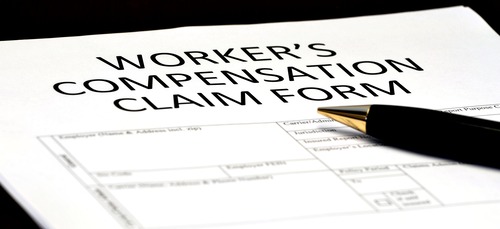All You Need to Know About an IME
If you’re thinking about filing a work comp claim, you should start preparing for an IME alongside. It’s the same thing for employees who are already receiving temporary disability benefits. Your employer can ask you to take an IME to determine the appropriate workers’ comp payment for you.
You can also request IME if you feel short-changed on your payments. The best way to succeed in your IME is to understand the aim and prepare yourself accordingly. Apart from adequate pre-exam preparations, you must learn the appropriate way to conduct yourself during the examination.
The most significant piece of advice you can get on the subject is from an experienced Miami workers’ compensation lawyer. Your attorney will help to prepare you for IME based on your unique situation. However, in this article, we’d discuss the general preparation tips that every work comp claimant should know.
What’s an IME?
IME is an acronym for Independent Medical Examination. Florida’s statute defines it as “an objective evaluation of the injured employee’s medical condition, including, but not limited to, impairment or work status.” In summary, IMEs clarify material facts and resolve disputes relating to the employee’s medical and work conditions.
An Independent Medical Examiner is a doctor who conducts medical examinations on non-patients. Usually, these doctors are independent and are not your treating physician. Where there’s a disagreement between the medical examiner and the treating physician, or two doctors, both parties can request an EMA. An EMA (Expert Medical Advisor) is a board-certified physician qualified to give an expert medical opinion on your case.
How Do I Prepare for an IME?
Here’s how to prepare for your independent medical examination:
-
Find Out What the Insurance Company Told the Examiner
Sometimes, the claims adjuster may write to the examiner to notify them of the issues in dispute. Along the line, the adjuster will try to represent the facts of the case in a way that favors the insurance company. You should find out the content of the letter and correct any mistakes or misrepresentations.
This is important because the examiner will ask questions based on the issues raised in the letter. Neglecting to address the falsehood in the adjuster’s report may prove detrimental to your claim. If you can, make an official request for the correspondence.
-
Be Conversant With All Material Facts of Your Case
You must be well-acquainted with the facts of your claims, from the details of the accident to your medical information. Make a mental note of how the accident happened, your course of treatment, your current symptoms, and your previous illnesses. The examiner will likely ask you questions in that regard, and they’d look for inconsistencies in your account.
Having all the necessary details will help you avoid inconsistencies in your report. However, you don’t have to say anything if you don’t remember some details. If there are any discrepancies in the examiner’s report, be sure to point them out. Again, it’s best not to exaggerate your injuries. Instead, don’t forget to mention even the mildest symptoms that you have.
-
Dress Properly
Dressing correctly for an IME means dressing consistently with the nature of your injury. For example, wearing heels when you have a hip injury isn’t appropriate in the circumstances. Also, bringing your medical devices like crutches, wheelchairs, etc., is a wise thing to do.
-
Plan to Arrive Early
Ensure that you don’t go late to your appointment. Missing it entirely will reduce your success rates. You can come along with your friend if you need moral support.
How To Behave During the Exam
Here are some helpful tips:
- Speak Politely: It’d be best to mind your tone of voice and demeanor as you speak with the examiner. Remember to be courteous and talk nicely even if the examiner seems hostile. Responding rudely to your examiner can harm your case.
- Never Tell a Lie: Your examiner is a trained physician and can detect a lie. As such, it’s best to be honest when answering questions.
- Emphasize the Difference in Your Previous Injuries: Your examiner may likely think that your symptoms are due to a previous injury and are not work-related. If this happens, be sure to explain how the current injury differs from the former. For example, saying that the previous wounds healed for a long time before the work injury can help.
Get Professional Help From Miami Lawyers 360
Workers’ compensation cases are so complex that getting an attorney is necessary to help you get what you deserve. Our workers’ comp lawyers at Miami Lawyers 360 will guide you through your claims from start to finish. We’d review your case and provide personalized legal advice on how to nail your IME successfully. Schedule a consultation with us right away.






